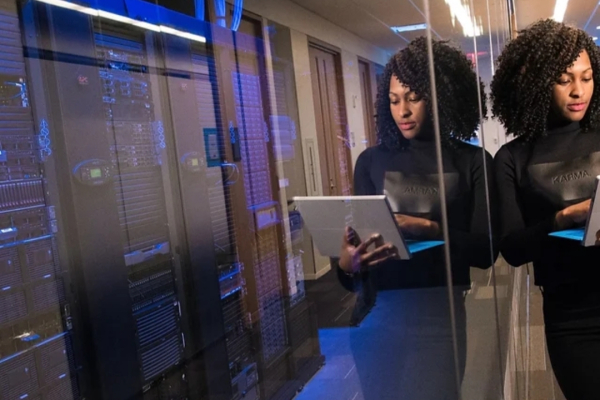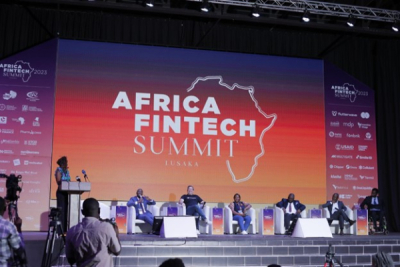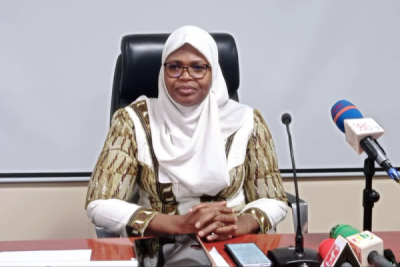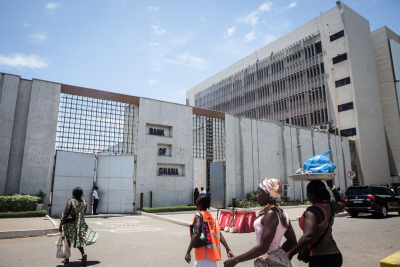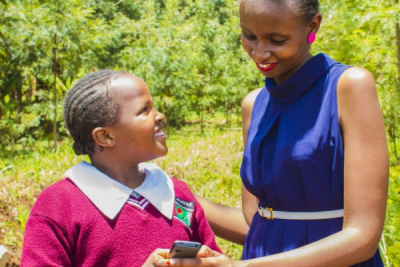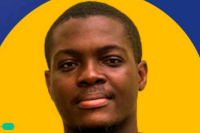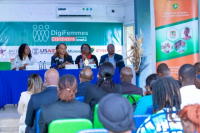Huawei South Africa is inviting tech-savvy women entrepreneurs to apply for its Huawei Women in Tech Digital Skill Training Program. This initiative, offered in partnership with the Department of Communications and Digital Technologies, focuses on enhancing skills in 5G, Cloud, and Artificial Intelligence (AI).
The program aims to empower women by providing advanced training in these critical technology areas. Interested applicants should be available to travel to the Huawei Office Park and Henley Business School Africa in Johannesburg between August 22 to August 28 for the training.
The Independent Communications Authority of South Africa (ICASA) has unveiled draft regulations for satellite services, encompassing SpaceX's Starlink. The proposed rules aim to establish a new licensing framework and address the challenges of low-earth orbit (LEO) satellites.
The draft regulations cover authorization for satellite user terminals, Internet of Things (IoT) devices, and spectrum management. ICASA is seeking public comments on the proposal by November 12, 2024, with feedback to be published online by November 30, 2024.
The Africa Fintech Summit (AFTS) has opened nominations for the 2024 Excellence in Fintech Awards. Since its inception in 2018, this event has consistently brought together key players in Africa's fintech ecosystem. This year's edition will take place in Nairobi, Kenya, from Wednesday, September 4, to Friday, September 6. The public is encouraged to nominate startups and prominent figures within the ecosystem across various categories.
Digital transformation is essential for the socio-economic development of the country. The government is ramping up its efforts to successfully complete ongoing projects aimed at enhancing citizens' well-being through access to efficient and inclusive digital services.
The Burkina Faso Ministry of Digital Transition, Posts, and Electronic Communications has achieved a performance rate of 55% for the first half of 2024, according to an evaluation of its objective contract recently conducted by Prime Minister Apollinaire Joachimson Kyelem de Tambèla. This result reflects the ministry’s commitment to meeting the targets outlined in its roadmap.
According to the ministry's statement, key achievements contributing to this success include "strengthening the legal framework for the digital sector, digitizing certain administrative services, acquiring equipment to enhance and secure the digital network, and restoring electronic communication services in high-security challenge areas."
Despite this "satisfactory" performance, some projects have experienced significant delays. Efforts to rehabilitate existing infrastructure and extend digital services to rural areas have been hindered by security challenges, exacerbated by political instability, which has affected the ministry's ability to adhere to its initial timeline.
For the second half of the year, the ministry plans to intensify ongoing projects, including the digitization of at least 100 administrative procedures, the creation of citizen service centers to facilitate access to online services, and the implementation of the Digital Transformation Acceleration Project. These initiatives are part of a broader strategy to position Burkina Faso as a leader in Africa for integrating information and communication technologies (ICT) into key sectors such as public administration, education, health, commerce, and agriculture.
Despite these advancements, Burkina Faso faces significant challenges. According to the "Measuring Digital Development – ICT Development Index 2024" report published in June by the International Telecommunication Union (ITU), Burkina Faso ranks 43rd out of 47 African countries in ICT development. This ranking highlights the considerable obstacles the country must overcome to fully harness digital technologies and improve the living conditions of its citizens.
Samira Njoya
Clear regulatory frameworks can foster innovation in the fintech sector, attracting investment and encouraging the development of new technologies and business models that can drive economic growth on the continent.
The Bank of Ghana (BOG) issued on August 16 a draft of guidelines designed to regulate digital assets. This move comes in response to the growing prominence of digital assets in the country. The Bank is currently seeking public input on the proposed measures and welcomes recommendations by August 31, 2024.
The draft guidelines are designed to outline the BOG’s proposed regulatory measures and invite feedback from industry stakeholders and the general public. The regulatory framework is expected to address the operations of exchanges and platforms involved in buying, selling, trading, and holding digital assets. It will also delineate which asset types are covered and regulate interactions between financial institutions and Virtual Asset Service Providers (VASPs).
The BOG plans to work with other regulatory bodies, such as the Securities and Exchange Commission (SEC), to develop complementary frameworks that align with their respective regulatory roles. Once the framework is finalized, VASPs operating in Ghana will need to seek authorization from either the BOG or the SEC, depending on their services. Those failing to register within the designated timeframe will be deemed to be operating illegally.
The BOG has acknowledged ongoing challenges in the sector, including regulatory and legal uncertainties, cybersecurity risks, market manipulation, and consumer protection issues.
According to a 2023 report by Chainalysis, Ghana ranks among the top - 29 out of 154- countries globally in terms of cryptocurrency adoption. This indicates a high level of interest and use of digital assets in the country. The Bank’s action reflects a proactive response to the growing interest and use of cryptocurrencies, aiming to address potential risks and opportunities associated with their widespread adoption.
Hikmatu Bilali
The name M-Shule, means 'mobile school' in Swahili, a widely spoken language in East Africa. It has transformed online learning on the continent, especially in several countries within the East African region.
M-Shule is a digital platform created by a Kenyan startup to enable access to online courses in East Africa. Founded in 2017 by Claire Mongeau and Julie Otieno, the Nairobi-based startup targets underserved populations, particularly in regions where 80% of the population lacks smartphones or internet access.
The platform is designed to educate, engage, assess, and survey hard-to-reach populations in Africa, especially in areas where most people do not have smartphones or internet access.
“[...] By delivering an all-in-one learning platform possible with the simplest feature phone, M-Shule unlocks new opportunities for millions across Sub-Saharan Africa," the startup explains.
Users can initiate conversations with M-Shule from their mobile phones, asking questions to deepen their understanding of specific course topics. The platform tailors responses based on the user's previously provided education level, allowing them to learn at their own pace. If a concept is unclear, users can request further explanations, with responses available at any time.
Primary school students can use M-Shule to review courses in English, Kiswahili, and mathematics. Parents can monitor their children's progress from registration onward through automated reports sent via SMS to their phones. "Our student users have improved their classroom exam scores between 7%-20% higher than their peers; schools report their classroom planning and administration have improved thanks to our analytics, reporting, and remedial guidance," the startup notes.
In addition to supporting students, M-Shule facilitates surveys and awareness campaigns via SMS. The platform currently serves over 45,000 learners and operates not only in Kenya but also in Tanzania and Uganda. Educational support is provided in seven languages: Dholuo, English, Kamba, Kikuyu, Kiswahili, Ng'aturkana, and Somali.
Adoni Conrad Quenum
After finishing his accounting training, he furthered his skills by specializing in technology during his studies in China. With this combined expertise, he uses his knowledge of the financial sector to promote digital payments throughout Africa
Junior Octave Kankue Denkey (photo), an accountant by training and a seasoned tech entrepreneur from Togo, is the co-founder and CEO of MiaPay, a fintech startup dedicated to simplifying everyday payments by connecting merchants and consumers. Founded in 2023, MiaPay features a unified app and an integrated digital wallet, offering users a convenient method for making digital payments and accessing a variety of financial services. With MiaPay, users can recharge their wallets, transfer and withdraw funds, and make offline payments at hundreds of partner merchants.
MiaPay also streamlines taxi fare payments through QR code transactions, providing users with bonuses of up to 20% per transaction. Currently in beta in Togo, the startup plans to extend its operations to Benin and Burkina Faso. To enhance its service offerings, MiaPay aims to integrate features such as bill payments for electricity, access to instant loans, mobile phone top-ups, and meal ordering. On August 15, in Lagos, Nigeria, the startup qualified for the finals of the Ecobank Fintech Challenge 2024, which is set to take place on September 27 in Lomé.
In addition to MiaPay, Octave Denkey is also the co-founder and non-executive director of Kiosk Global, a social commerce platform established in 2023 that connects Chinese suppliers with African consumers. Prior to MiaPay and Kiosk Global, he launched several other startups.
In 2011, he co-founded Miaplenou Group, an online retailer based in Togo. In 2014, he founded Ahaa Tech, a company that enhances the experiences of foreign travelers in China by guiding them to unique places and events. In 2017, he was instrumental in establishing Zocentive, a lifestyle and wellness app, and two years later, he launched Sumo Tech, an innovative platform that connects merchants and consumers across Africa.
Octave Denkey holds a bachelor's degree in accounting and business management from the University of Lomé, which he earned in 2012. He also graduated from the South China University of Technology. From 2012 to 2020, he served as a One Young World ambassador in Togo, representing a global community of young leaders.
Melchior Koba
As digital transformation gains momentum, the demand for skilled labor is increasing. In Côte d'Ivoire, the government is working closely with the private sector to ensure that all citizens receive the necessary training to contribute to this shift.
Digital training center DigiFemmes announced on Wednesday its goal to train 1,000 Ivorian women in digital skills, leadership, and responsible technology use.
The initiative follows a memorandum of understanding signed between Nassénéba Touré, Minister of Women, Family, and Children, and DigiFemmes during the official launch of the DigiFemmes Caravan program on August 14.
"Through this caravan, we will offer a variety of training sessions, workshops, and resources to support women in their personal development and contribute to the progress of our nation. This program will enable thousands of women to acquire essential digital skills that will enhance their lives in every aspect," stated Nassénéba Touré.
The program aligns with DigiFemmes' mission to bridge the digital divide and supports the Ivorian government's view of digital technology as crucial for women's employability and empowerment.
In 2019, women represented 38% of the ICT sector workforce, with 30% in executive positions, according to Côte d'Ivoire's Data Protection Authority.
Since 2015, programs like Orange Foundation's Maisons Digitales have trained 4,738 women in digital fields, underscoring ongoing efforts for women's economic empowerment in Côte d'Ivoire.
The DigiFemmes partnership aims to improve women's integration into the digital economy, enhance leadership skills, and strengthen autonomy. It is expected to reduce the gender digital skills gap and foster innovation, contributing to the country's socio-economic development.
Samira Njoya
Satellite technology has seen significant growth in Africa over the past ten years. While the telecommunications sector has traditionally been the primary beneficiary, Earth observation is increasingly gaining value with a growing number of African states now eager to enhance their territorial monitoring capabilities through satellite technology.
Senegal successfully launched its first satellite, GAINDESAT-1A, into space on Friday, August 16, 2024, after a three-month delay. The nanosatellite lifted off at 6:56 p.m. local time from Vandenberg Space Force Base in California aboard SpaceX's Falcon 9 rocket as part of the Transporter-11 mission.
Developed by Senegalese engineers and technicians trained at the University Space Center of Montpellier (CSUM) under a partnership with the Senegalese government, GAINDESAT-1A represents the culmination of a five-year project.
President Bassirou Diomaye Faye hailed the achievement, saying, "Senegal enters a new era today with the successful launch of our first satellite ... this achievement marks a major step towards our technological sovereignty."
The launch is the first phase of Senegal's national space program, "SenSAT," which aims to leverage the space sector as a driver of socio-economic development. The program focuses on designing and utilizing space-based tools to meet national needs for space products and services.
Moussa Baldé, former Minister of Higher Education, Research, and Innovation, stated last October that the program aims to establish Senegal as "a space hub for the sub-region."
GAINDESAT-1A, an Earth observation satellite, will contribute to data collection and analysis for various applications, including natural resource and land management, disaster prevention, agriculture and more.
The satellite's control and data reception center, inaugurated in October 2023, is located in Diamniadio.
Investing in renewable energy and clean technologies is essential for reducing carbon emissions and enhancing energy security. Ultimately, they can help safeguard Africa’s economic future by addressing the root causes of climate-related economic losses and contributing to a more sustainable and prosperous continent.
The African Development Bank Group (AfDB) has approved $10 million to the KawiSafi II Fund to support climate-focused startups serving vulnerable communities across Africa. Announced on August 12, the investment will be drawn from the Sustainable Energy Fund for Africa (SEFA), a financing facility managed by the AfDB.
KawiSafi Ventures Managing Director Amar Inamdar described the investment as “catalytic,” noting that it would help the fund achieve its first close and attract further capital to support Africa’s climate innovators. “The African Development Bank’s investment into KawiSafi II, our innovative climate fund, is catalytic for helping us reach a first close and attract the significant private capital that is urgently required to support Africa’s climate innovators,” he said.
The $200 million KawiSafi II Fund targets energy transition, productivity, mobility, and logistics in sub-Saharan Africa and includes a $10 million facility for climate impact and ESG risk management.
The new fund follows KawiSafi Fund I, a $67 million off-grid energy fund launched in 2016 and backed by Acumen Fund. Fund I has invested in companies such as d.light, Bboxx, and BioLite. d.light recently secured a $176 million facility to scale its PayGo consumer finance offering in Kenya, Tanzania, and Uganda.
Projections from the "State and Trends in Adaptation Report 2023" by the Global Center on Adaptation estimate that climate change could cause a 2% to 4% annual loss in Africa’s GDP by 2040. This highlights the critical importance of the African Development Bank Group’s (AfDB) $10 million investment in the KawiSafi II Fund.
The investment aligns with the AfDB's broader goals of fostering sustainable development in Africa, demonstrating a commitment to addressing both immediate and long-term challenges through strategic financial support.
Hikmatu Bilali
More...
Born out of the notice that informal markets, often referred to as 'souks' or 'dukas' in Ethiopia, are underserved by traditional market players and distributors. The solution aims to bridge this gap.
Jemla is a business-to-business e-commerce platform developed by an Ethiopian startup that enables informal shop owners to source supplies from distributors of fast-moving consumer goods (FMCG). Founded in 2019 by Estephanos Zewdie and based in Addis Ababa, the startup aims to empower informal businesses by enhancing their operations and financial stability.
"Part of our mission is to provide retailers with access to essential financial services. We understand the importance of financial empowerment in driving business growth and sustainability," the startup states.
Jemla's solution is accessible through a mobile application available exclusively on Android. Users can create an account to connect with various suppliers on the platform. Depending on their inventory needs, they can place orders and receive deliveries the next day directly to their shops. This system ensures that retailers maintain adequate stock levels to consistently meet customer demand.
In addition to its core services, Jemla offers supplementary support. The startup collects data from each shop to provide financing options, credit facilities, or deferred payment plans. "We plan to leverage the transaction data from these retailers to facilitate access to 'Buy Now, Pay Later' (BNPL) services and financial products from banks and financial institutions, thereby improving their cash flow and financial stability," explains Estephanos Zewdie.
Currently operating solely in Addis Ababa, Jemla serves over 12,000 retailers on its platform. However, the startup has no immediate plans for expansion beyond its local market, focusing instead on replicating its successful model in other cities across Ethiopia.
Adoni Conrad Quenum
He is committed to supporting small and medium-sized enterprises by streamlining their operations and enhancing their profitability. To achieve this, he offers an innovative technological solution that enables real-time inventory tracking and management.
Tunisian computer scientist and entrepreneur Seddik Houimli (photo) is the founder and CEO of SupplyzPro, a tech startup helping small and medium-sized enterprises (SMEs) optimize their operations management.
Founded in 2023, SupplyzPro offers an innovative platform allowing businesses to track inventory in real-time, regardless of location. The solution provides tools for tracking, forecasting, and reporting, simplifying inventory processes and eliminating outdated practices.
The platform streamlines operations, reduces manual errors, and improves accuracy across the supply chain. Users can easily access up-to-date information on their inventory, including stock levels and demand. This results in more efficient management, better cost control, and increased responsiveness.
Houimli also works as a cloud solutions architect at Microsoft in Germany and is part of the operations and growth team at START Munich, an entrepreneurial community. He holds a computer science degree from the Technical University of Munich, obtained in 2023.
Before his entrepreneurial venture, Houimli worked as a teaching assistant at the Technical University of Munich from 2020 to 2021. He also served as a business intelligence analyst at SpaceTrec Partners (now Novospace), a company providing decision-makers in both public and private sectors with information to better manage their organizations. In 2022, Houimli worked as operations manager for Evadam, a Tunisian tech startup combating online fraud and money laundering.
Melchior Koba
The growing demand for connectivity, data storage, and processing in Africa highlights the rapid acceleration of digital transformation across the continent. To meet the needs of businesses and governments, significant investments in digital infrastructure are underway.
Open Access Data Centres (OADC), a subsidiary of digital infrastructure provider WIOCC, launched its first facility in the Democratic Republic of Congo (DRC) on Wednesday in partnership with local company Texaf.
OADC Texaf Digital - Kinshasa is a Tier 3 open-access data center, neutral with respect to operators. It features 2 MW of computing capacity and 1,500 square meters of white space, accommodating over 550 racks.
"OADC Texaf Digital - Kinshasa is central to boosting many sectors of the DRC’s economy, creating rich and vibrant digital ecosystems, and providing content distribution networks and cloud content providers with access to a quality peering location in the country," said Mohammed Bouhelal, Managing Director of OADC Texaf DRC, said,
WIOCC and Texaf signed a shareholder agreement to build the data center in Kinshasa in July 2023. This aligns with WIOCC's plan to expand its digital infrastructure across Africa. The company operates six core data centers across the continent and more than 30 edge data centers in South Africa. It also boasts 200,000 kilometers of submarine fiber systems and 75,000 kilometers of terrestrial fiber. In June, WIOCC secured $41 million in funding to support its investments.
The new facility strengthens DRC’s digital infrastructure, meeting current and future needs of Internet exchange points, content providers, cloud operators, data carriers, telecommunications operators, and Internet service providers in the DRC. The launch comes amid high demand for digital services and high-speed connectivity from individuals, businesses, and government agencies.
Isaac K. Kassouwi
Cross-border payments in Africa face significant hurdles that slow down transactions. Innovative solutions are essential to streamline these payments and boost economic growth across the continent.
Latin American cross-border B2B payment platform Conduit announced on Monday, August 12, it raised $6 million in funding led by Helios Digital Ventures to expand into Africa.
The fintech, founded in 2021, will use the money to offer its services to African businesses struggling with high costs, slow speeds, and complex currency conversions.
Conduit has been operating in Kenya and Nigeria since December and processed more than $5 billion in annualized transaction volume, with 20% originating from those countries. The company plans to enter Ghana and South Africa soon.
The expansion comes as Sub-Saharan Africa remains the world’s most expensive region for sending money, with average costs of 7.9% per $200 transfer, according to the World Bank.
Conduit's expansion into Africa aims to address critical cross-border payment needs for businesses on the continent. By offering solutions that reduce costs, speed up transaction times, and simplify currency conversions, Conduit could become a key player in enhancing the financial efficiency of African businesses.
Samira Njoya


